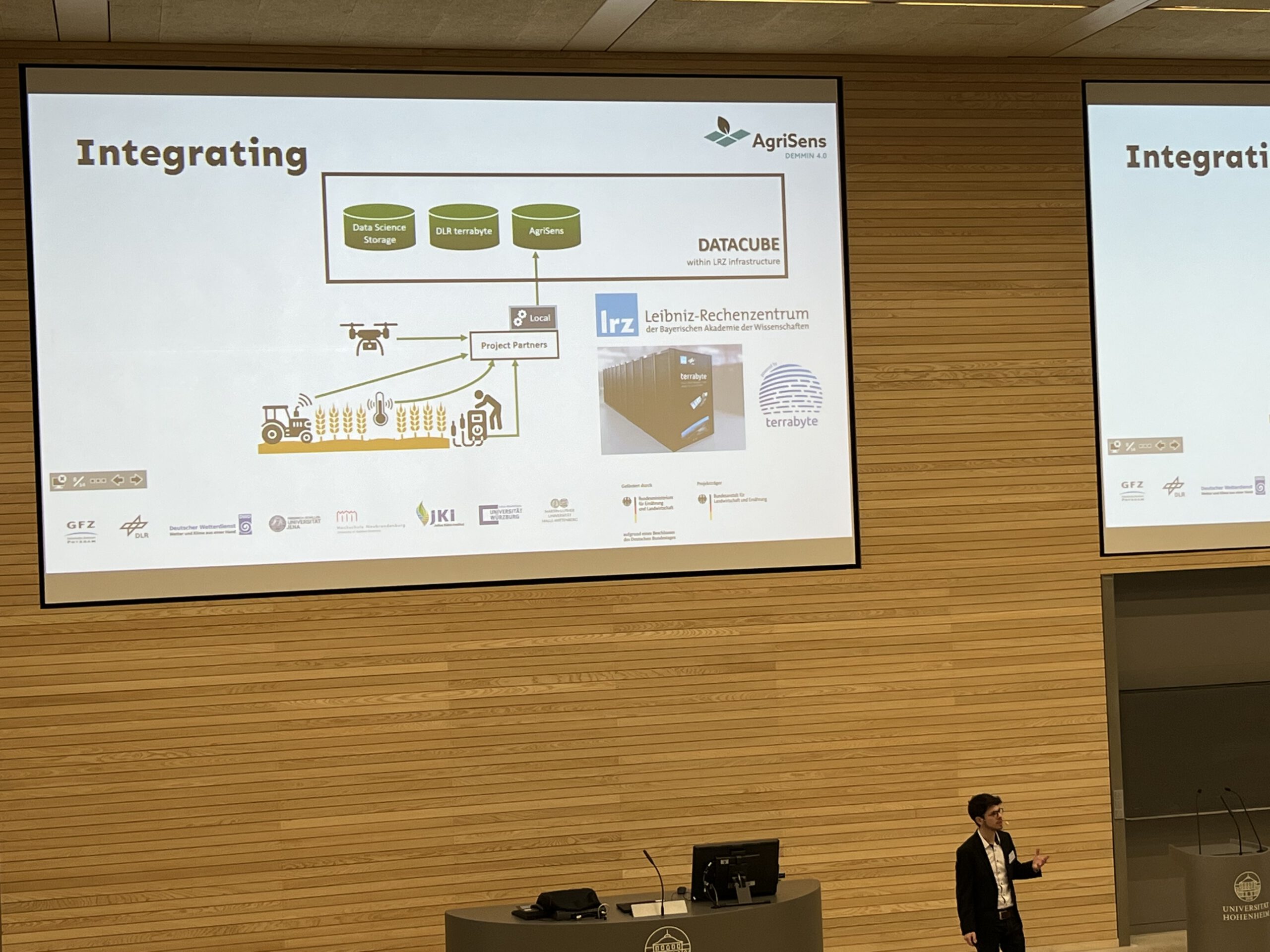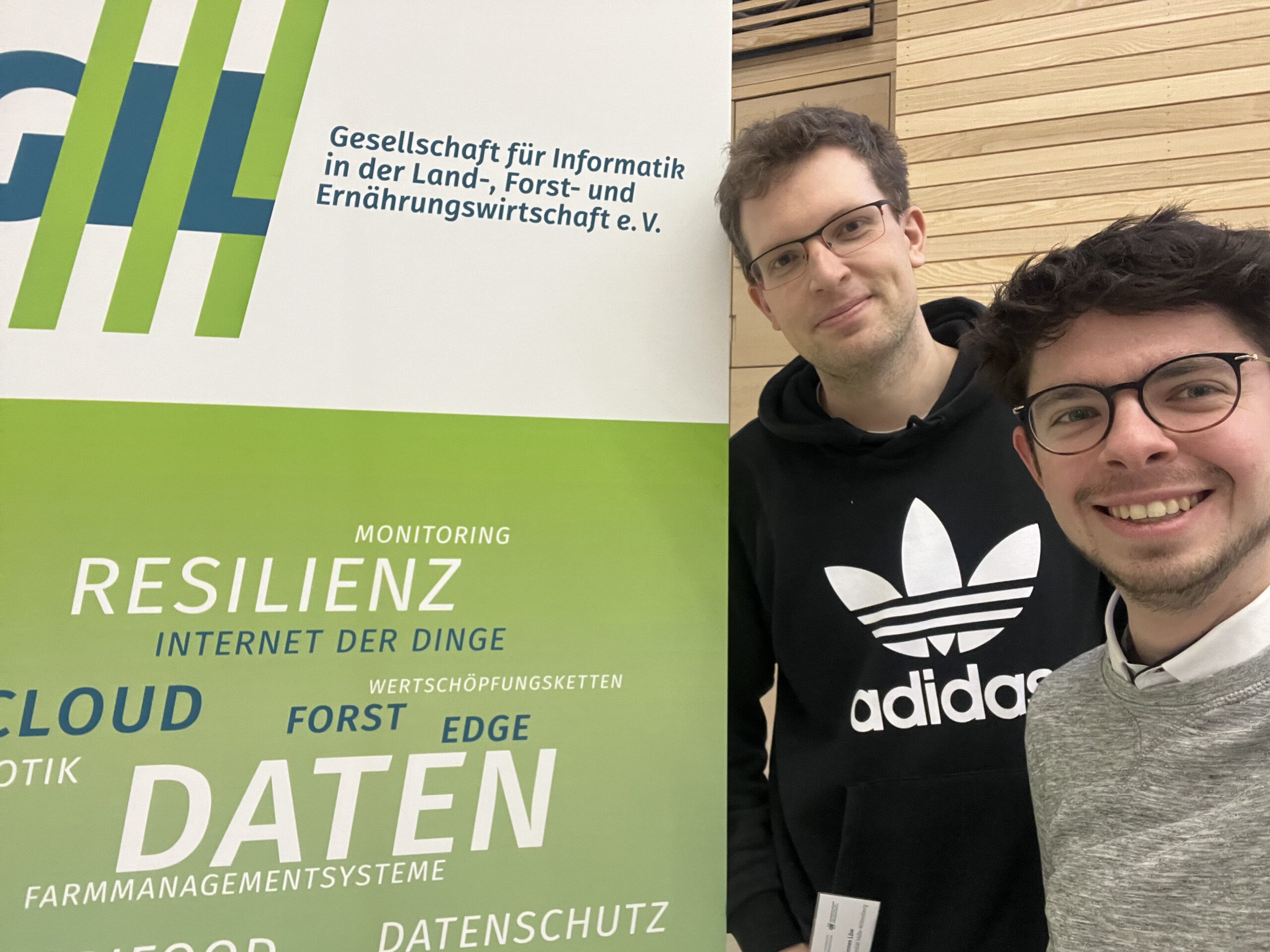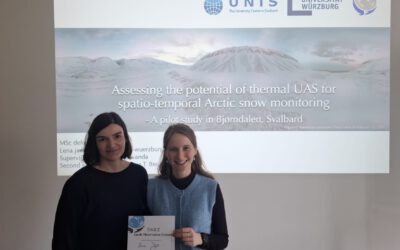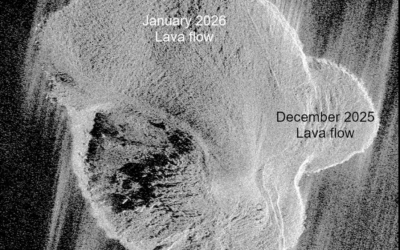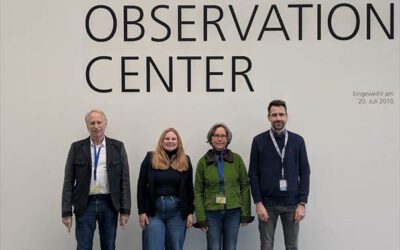At the end of February, the datacube team of our EORC contributed to the GIL-Tagung, the yearly conference of the Society for Computer Science in Agriculture, Forestry and Nutrition (GIL). The event – held at the University of Hohenheim, which is one of Germany’s top destinations for agricultural sciences – gathered some 250 scientists to discuss their latest developments in the agrifood domain, including many interesting approaches using remote sensing or big data. Together with colleagues from the AgriSens DEMMIN 4.0 project, we submitted a paper outlining the system architecture of our agricultural datacube, with an emphasis on the various ways in which its potential is delivered to end users. Read it at ResearchGate!
The picture shows Christoph Friedrich, who lead the submission and presented the paper in the session, and Johannes Löw, a colleague from the AgriSens project and former EAGLE student who remains working very closely with our datacube team while pursuing his PhD in Christopher Conrad’s group at the University of Halle.
